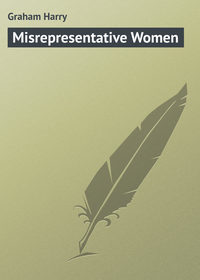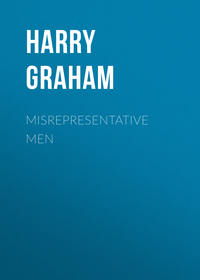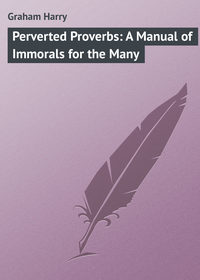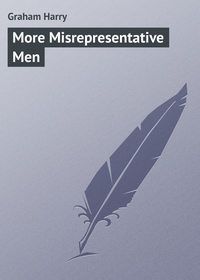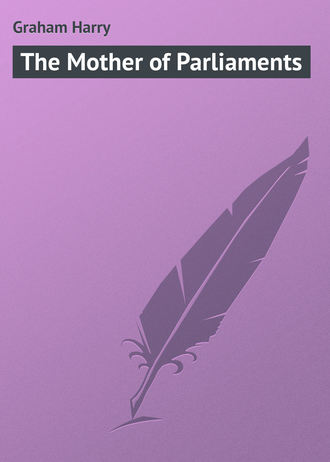 полная версия
полная версияThe Mother of Parliaments
As the years advanced the House of Commons became more and more particular in this respect, and at the beginning of the nineteenth century an eye-witness was struck by the large proportion of bald-headed men – nearly a third of the whole number – in the Lower Chamber.87 To-day no one who has not reached the mature age of twenty-one can stand for Parliament, much less sit upon the sacred green benches.
Lunatics and idiots are also disentitled to parliamentary election. A member who goes mad after having taken his seat can only be removed, however, if his case is proved to be a hopeless one, the House being then petitioned to declare the seat vacant, and the Speaker issuing a new writ. In one well-known instance a committee of the House found that a member's lunacy was not so incurable as to justify his removal, and he retained his seat. In 1881 the case of a lunatic recording his vote in a division was the occasion of a painful and futile debate. The member in question suffered from periodical bouts of insanity, and had recently been certified "dangerous" at his own request, in order that he might retire temporarily to an asylum. It was therefore obviously improper for him to vote. The House, however, declined to take any serious notice of the incident, the motion for an inquiry by a Select Committee into the circumstances of the case being negatived, and the matter tactfully allowed to drop.88
Aliens cannot sit in Parliament until they have taken the precaution of becoming naturalised British subjects. In William III.'s time all persons born outside the dominions were disqualified, and when the Test and Corporation Acts were repealed in George IV.'s reign, an amendment was inserted by the Bishop of Llandaff in the House of Lords by which Jews were excluded from Parliament. They were finally admitted to the House of Commons in 1858, and during the reign of Queen Victoria naturalisation was held to carry with it full political rights.
English and Scottish peers are incapacitated from serving in the Commons. Irish peers, however, may do so, provided that they are not already sitting as representative peers in the House of Lords.89 The eldest sons of peers were excluded from the Lower House down to the middle of the sixteenth century, when they were gratefully admitted and given seats of honour on the front bench with the Privy Councillors.
Irishmen enjoy parliamentary privileges not only as peers but also as bankrupts. The occasional combination of the two therefore carries with it some slight compensation. A bankrupt Englishman or Scotsman is disabled from even standing as a candidate for Parliament, whereas his more fortunate Irish brother may be elected. Members of Parliament who become bankrupt after election may continue to sit and vote in the Commons until the Speaker has received official notification of their bankruptcy, or the House has ordered their withdrawal.
The election of clergymen and other ministers was prohibited by an Act of 1801, passed in order to deal with the case of the Rev. J. Horne Tooke, the "Father of Radicalism," who had been elected for Old Sarum. It did not succeed in its object, however, for he continued to sit for the remainder of the Parliament.90 And by another Act, passed about 1870, any one who has relinquished the office of priest or deacon is eligible for election. Otherwise no minister of the Established Church may sit in Parliament.
Many other persons are similarly debarred, among whom may be mentioned the holders of offices under the Crown created since 1705, Crown pensioners (exclusive of civil servants and diplomats), and Government contractors. Persons guilty of treason or felony (who have neither served their sentence nor been pardoned), or of corrupt practices at elections are likewise disqualified,91 as are also those who are unable to take the Oath of Allegiance or to affirm. There are, besides, a number of officials connected with the administration of justice, or concerned with the collection of the Revenue, or representatives of the Crown – judges, colonial governors, etc. – who are incapacitated by their positions from sitting in the House of Commons.
At one period of parliamentary history lawyers were excluded from the House of Commons, enactments in favour of keeping out "gentlemen of the long robe" being passed in Edward III.'s time. They were always unpopular members, it being supposed that they only entered Parliament as a stepping-stone to wider practice at the Bar or to some sort of Government employment. The legal profession was looked upon as one into which no one entered without views of self-aggrandisement, and the use of a seat in Parliament as a means of advertising oneself did not appeal to the country at large.92 Lawyers are allowed to sit in the House to-day, but they may not practise as counsel before Parliamentary Committees, nor even advise professionally upon any private Bill.
Having successfully eluded all these disqualifications, paid a large sum for the privilege of serving his country, talked himself hoarse on the platforms of his constituency, and finally been returned in triumph to the House of Commons, the private member may consider himself safely launched upon the parliamentary sea. It now remains to be seen whether or not political life comes up to his expectations. If he is energetic, ambitious, and eloquent he will find free scope for his talents on the green benches at Westminster. He will be given a chance of proving his worth upon Select Committees. Here he can serve his apprenticeship in preparation for that glorious day when he may be inspired to thrill and enrapture a delighted assembly with such an outburst of oratory as shall at once establish his claim to the consideration of his party. Then indeed does Fortune seem ready to smile upon the embryo statesman. In imagination he sees himself lounging upon the Treasury bench, his feet cocked up against the historic Table, while he writes a report of the debate for the edification of his Sovereign. To the political enthusiast the prospect is a rosy one. But alas! it is not every man who can aspire to the giddy heights of the front bench. After many a session of laborious days and sleepless nights, after many a recess devoted to the tiresome art known as "nursing" his constituency, after many disappointments and trials, our member may still find himself at the bottom of the parliamentary ladder. Even if he ascends to what Mr. Gladstone would have called "measurable distance" of the top, his tenure is precarious; in the defeat of a Government at a General Election he too may fall. And though his constituents remain loyal and his seat secure, there arrives a day when he begins to weary of the slavery of parliamentary life, of the drudgery of a political career. Like Macaulay, he may at length come to define politics as a pursuit from which the most that those who are engaged in it can expect is that by relinquishing liberal studies and social pleasures, by passing nights without sleep and summers without one glimpse of the beauty of nature, they may attain "that laborious, that invidious, that closely watched slavery which is mocked with the name of power."93 When this tragic moment arrives, or when through physical infirmity, advancing years, or penury, he wishes to bid a long farewell to the scene of his parliamentary labours, he has still a minor obstacle to contend with.
A member cannot resign his seat, nor is it permissible for him to exchange it for any other. Only his own death or the dissolution of Parliament can enable him to cease from being a member, unless the House itself declares his seat to be vacant. Even expulsion from the House does not prevent his immediate re-election by a constituency determined to retain his services, as was shown in the case of Walpole – twice expelled from the House, and re-elected by the voters of Lynn – and of Wilkes and Bradlaugh. The only thing that can prevent a man from sitting in the House, or allow a member to escape from its service, is the fact of his coming within the range of that long list of disqualifications already enumerated.
How then can a member vacate his seat in the simplest fashion? Many members would think twice before becoming bankrupt or committing a felony in order to avoid parliamentary duty. It is not given to every one to be a Colonial Governor, an Auditor General, or even a Charity Commissioner. But, by the merciful connivance of the powers that be, it is always possible for a member to incapacitate himself by holding a Crown appointment. For this beneficent purpose two ancient stewardships of a purely nominal value are upheld, that by accepting either of these offices a member may be enabled to retire gracefully from Parliament.
The steward or bailiff of the three Chiltern Hundreds of Stoke, Desborough and Boneham, and the steward of Northstead, were officers appointed by the Crown in past ages to look after certain Buckinghamshire forests in which brigands abounded. The brigands are long since dead, and the forests themselves have been converted into parks and pasture lands, but the stewardships remain, a convenient city of refuge for members who desire to escape from the active strife of Parliament, to whom they are sometimes presented as often as nine times in one session. "The parliamentary constitution of England," said Disraeli, "was born in the bosom of the Chiltern Hills; as to this day our parliamentary career is terminated among its Hundreds."94 And since no county is fraught with greater historical and political interest than Buckinghamshire, it is perhaps fitting that it should be the means of providing a merciful release for the jaded parliamentarian whose course is run.
CHAPTER IV
THE PALACE OF WESTMINSTER
Parliament may be summoned to assemble wherever the king pleases. Westminster, the site of that royal palace which has sheltered so many English sovereigns, from King Canute to Henry VIII., was for centuries the most natural meeting-place for the Great Council of the nation. But many another town, such as Winchester, Bury St. Edmunds, Leicester, Coventry, Reading, Salisbury, and half a dozen more, has at different times been selected as the temporary seat of Parliament, either to suit the royal convenience, or for other reasons.
Of the twenty Parliaments of Edward II. one met at Ripon, one at Northampton, and three at York and Lincoln. In Stuart days Oxford was the place chosen on two occasions, in 1625 and in 1665, when London was being ravaged by the Plague. Since the Revolution of 1668, however, Parliament has ceased to be nomadic in its habits; in its old age it has definitely settled down at Westminster, and there it is likely to remain.
The palace in which Canute first resided, within a stone's throw of the Thames, was burnt to the ground somewhere about the year 1040. Edward the Confessor rebuilt it ten years later, and in the days of William Rufus the addition of the Great Hall further enhanced the dignity of the palace. Here William held his first court, on his return from Normandy, and since his day a succession of kings have made it the centre of innumerable scenes of royal pomp and pageantry.
William Rufus was a man of large ideas. Even the magnificence of the Great Hall did not entirely satisfy his taste for grandeur. In his imagination he had conceived a still more splendid scheme of architecture, and was disappointed with the size of the new building. On first entering to inspect it, accompanied by a large military retinue, he overheard some tactless persons remark that, in their opinion, the Hall was far too large. With a scornful look the King reduced these critics to silence, explaining that, so far from this being the case, the Hall was not half large enough, being, in fact, but a bed-chamber in comparison with the building of which he intended it to form part.95
By the end of the fourteenth century Westminster Hall had fallen into disrepair, and during the reign of Richard II., when the poet Chaucer was clerk of the works, it was rebuilt, the expense being met by a tax levied upon all foreigners in the kingdom. Richard celebrated the event by keeping Christmas there in a suitably seasonable fashion, "with daily justings and runnings at tilt; whereunto resorted such a number of people that there was every day spent twenty-eight or twenty-six oxen, and three hundred sheep, besides fowl without number."96
Prior to the days when such feats of engineering as the building of the modern Thames Embankment were possible, the proximity of the Palace to the river necessitated a system of constant repair. Until confined within reasonable limits, the Thames showed a disposition to overflow its banks upon the slightest provocation, much to the inconvenience of the royal residents in the neighbourhood. In 1236 the Palace was completely flooded, so that "men did row with wherries in the midst of it," and six years later a similar fate befell Westminster Hall. In 1579 the river once more trespassed upon the royal domain, fish being afterwards found in a moribund condition on the floor of the Great Hall. The latter, indeed, continued to be visited by periodical floods as late as the year 1841.
Fire, too, seems to have proved a constant menace to the safety of the palace, though at the time of the Fire of London the Great Hall was one of the few places in which citizens could store their goods out of harm's way. In 1299 part of the palace was burnt to the ground, and at the beginning of the sixteenth century so great a proportion of it fell a prey to a "vehement conflagration" that Henry VIII. decided to forsake it altogether, and removed his court to Whitehall. Since that day royal personages have ceased to lodge at the Palace of Westminster, which is still, however, nominally a royal residence, and as such remains in the custody of an officer of the King's household.97
The Great Hall still continued to be used as the most appropriate stage for State ceremonies, for coronations and the banquets with which such events were celebrated. It was also the scene of most of the great State trials famous in English history. Such men as William Wallace, the Earls of Arundel, of Essex, and of Strafford, were here arraigned upon a charge of high treason; here Charles I. was condemned to death. In Westminster Hall Titus Oates was stripped of his ecclesiastical habit and exposed to public obloquy, with a placard upon his breast declaring his offence. Beneath this wide oak roof the Duchess of Kingston was tried for bigamy, much to her delight. Here, too, Warren Hastings faced his accusers, and triumphed over them. This is the Hall, as Macaulay says in a well-known passage, which witnessed the just sentence of Bacon and the just absolution of Somers; the Hall where the eloquence of the latter for a moment awed and melted a victorious party inflamed with just resentment. This, we may now add, is the Hall where the body of Gladstone lay in state, and the mortal remains of King Edward VII. received the homage of his sorrowing subjects.
No State trial has been held in Westminster Hall since Lord Melville was acquitted there in 1806, and on the only recent occasion on which a member of the House of Lords was tried by his peers, on July 18, 1901, the Royal Gallery of the Lords was fitted up as a court.
For centuries the coronation feasts, which were held in Westminster Hall, provided the public with a stately and imposing spectacle. Not the least interesting part of the ceremony consisted in the entrance of the King's Champion, clad in armour and mounted upon a fiery charger, who flung down his gauntlet and challenged to mortal combat all who dared to question the monarch's right to the throne. The feat required some personal courage, as well as the possession of a docile steed, for if it were not accomplished successfully the effect might well be ludicrous. Before the coronation of George III., Horace Walpole relates, Lord Talbot had spent much care in training his charger to walk backwards, so that it might make a graceful exit from the Hall without ever exposing its tail to the royal gaze. Unfortunately, the lesson had been too well learnt, and the horse insisted upon entering the Hall backwards, much to the amusement of the spectators.
Sovereigns are no longer crowned in Westminster Hall, but in the Abbey close by, and no coronation feast has been held there since the accession of George IV., when the guests repaid their sovereign's hospitality by carrying away most of his spoons as souvenirs of the event. The Hall has, however, been the scene of other less-important banquets, as, for instance, in 1905, when the officers of the visiting French fleet were entertained there as the guests of the British nation.
To Westminster Hall, Henry II. summoned his Barons in Council, and in the reign of Henry III. parliaments were often held there. Gradually, however, the building became devoted exclusively to the judicial side of the king's Great Council, and, when Edward I. occupied the throne of England, the Courts of King's Bench and Chancery held their meetings regularly at the south end of the Hall. Peter the Great, during a brief stay in England, paid a visit to Westminster Hall, and was much struck by the presence of a number of busy people in long black gowns and bobtailed wigs. On being informed that these were lawyers, "I have but two in my dominions," he observed thoughtfully, "and I believe I shall hang one of those directly I get home!"
New buildings were erected in 1738, on the west side of the Hall, to accommodate the judges, and when, about a hundred and fifty years later, the Palace of Justice was built in the Strand, the representatives of the law emigrated thither in a body.
The general public for a long time shared with the lawyers the privilege of trading within the precincts of Westminster Hall. In Edward III.'s reign merchants' stalls abounded there, being temporarily boarded over on the occasion of State pageants, and, at a much later date, Laud tells us in his diary, a conflagration in one of these shops threatened to destroy the entire building.
During the seventeenth century, book-sellers, law-stationers, and other tradesmen still plied their callings in the Hall, undisturbed by the pleadings of their legal rivals.98 On the one side, as we read in a contemporary chronicle, were to be seen "Men with Baubles and Toys, and on the other taken up with the Fear of Judgment, on which depends their inevitable Destiny. On your Left Hand you hear a nimble Tongu'd Sempstress, with her Charming Treble, Invite you to buy some of her Knick-Knacks: And on your Right, a Deep-mouth'd Cryar commanding Impossibilities, viz. Silence to be kept among Women and Lawyers."99 In the days of Pepys, the Great Hall had become a regular meeting-place for the public, and was still the most popular market for the sale of books.100
Trade has long been banished from the portals of Westminster Hall, its stately precincts are now desecrated by no foot less worthy than that of the Member of Parliament or the Saturday sight-seer. In other respects the Hall remains unchanged. Save for the retimbering of the roof in 1820 with oak taken from old men-of-war, it stands to-day much as it has stood for centuries. Structural alterations have occasionally been suggested, but without effect. One projected by Lord Grenville, necessitating the removal and raising of the entire roof, evoked many indignant protests.101
In New Palace Yard, opposite the entrance of Westminster Hall, a huge clock-tower once stood. It had been erected in the reign of Edward I., the cost being defrayed by a fine levied on Sir Ralph de Hengham, Chief Justice of the King's Bench, as a penalty for altering a judicial record in favour of a pauper litigant. In this tower hung a bell, known as "Great Tom of Westminster," whose voice on a clear day could be beard as far away as Windsor.102 In 1707 both tower and bell were pulled down, the latter being recast and presented to St Paul's Cathedral where it still hangs.
Near the tower was a fountain from which on great occasions wine was made to flow for the delectation of the populace, while close by stood the pillory in which Titus Oates, John Williams, the publisher of John Wilkes's North Briton, and many other offenders against parliamentary privilege, suffered the penalty of their crimes.
Westminster Hall lies nearly due north and south. At its south-east angle, stretching towards the river, stands St. Stephen's Hall, on the site of that famous Chapel, founded by King Stephen and called after his sainted namesake, which was for so long the home of the Commons.
The Chapel was partly destroyed by fire in 1298, but was subsequently restored at great cost by Edward III., who also built an adjacent belfry of stone and timber containing three huge bells which were rung at "coronations, triumphs, funerals of princes, and their obits."103 After the Reformation the thirteenth century decorations which originally adorned the walls of St. Stephen's Chapel were whitewashed and covered with boards, and the building was given over to Parliament.
Though the Three Estates originally sat together, they seem to have deliberated separately. Parliament used to meet occasionally in the Priory Church of Blackfriars Monastery, but when the Houses parted company a chamber in the Palace of Westminster was reserved for the Lords, while the Commons retired to the Chapter House of the Abbey. Later on they assembled in or near Westminster Hall – Richard II. held a parliament in a building erected for the purpose outside the Great Hall – and finally, about the year 1550, St. Stephen's Chapel was fixed upon as the regular meeting-place of the Commons.
The Chapel was an oblong building, but half as long and half as broad as Westminster Hall, and most of the floor space was occupied by the Lobby. It was a gloomy and narrow chamber, and what the German traveller Moritz calls "mean-looking." At the western end was a gallery to which members ascended by means of a ladder near the southern window.104 At the eastern end stood the Speaker's chair, and opposite it the famous bar where so many persons have stood, either as prisoners, witnesses, or patriots. Here Pepys, buoyed up with brandy, appeared to answer the charges that had been brought against the Navy Office in 1667-8. Here, a century and a half later, Mrs. Clarke, the Duke of York's discarded mistress, was examined for two hours on the subject of his alleged corrupt sale of commissions – an ordeal from which she emerged triumphantly. At this bar victorious soldiers, from the days of Schomberg to those of Wellington, have received the thanks of Parliament for the services they rendered to their country. And many a trembling prisoner has stood here to receive sentence or reprimand at the mouth of the Speaker.
On either side of the old House were ranged rows of wooden benches, hard and comfortless, with neither backs nor covering. Not even were Ministers provided with padded seats.
"No satin covering decks th' unsightly boards;No velvet cushion holds the youthful Lords;And claim illustrious tails such small regard?Ah! Tails too tender for a seat so hard!"105St Stephen's Chapel was in size quite inadequate to the needs of legislators – the only point, perhaps, in which it resembled the present House of Commons. David Hume complained perpetually of the lack of room; while Cobbett cynically referred to it as "the little hole into which we are all crammed to make the laws by which this great kingdom is governed."106 Lined with dark wainscot and lit by three chandeliers, the gloomy chamber did not impress the stranger with the dignity or splendour of parliaments, and a visitor to St Stephen's might well have been excused for mistaking the House of Commons for a den of thieves or a crew of midnight conspirators.107
As was only natural, the dingy surroundings exercised a detrimental influence upon the manners of members. Moritz was surprised to see many of them lying stretched out at full length on the uncomfortable benches fast asleep, while others cracked nuts or ate oranges. "The many rude things the members said to one another," he observes sadly, "struck me much."108 Not only was the House squalid and dirty, it was also infested with rats. Speaker Manners Sutton told Thomas Moore that the only time he had ever laughed while occupying the Chair was during a debate in which members of the Opposition had been squabbling fiercely together, when he saw a large rat issue from beneath the front Opposition bench and walk deliberately across to the Treasury side of the House.109


